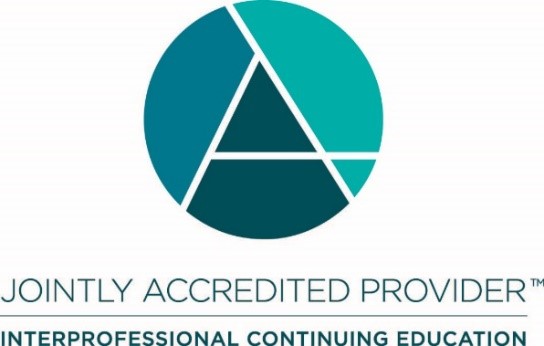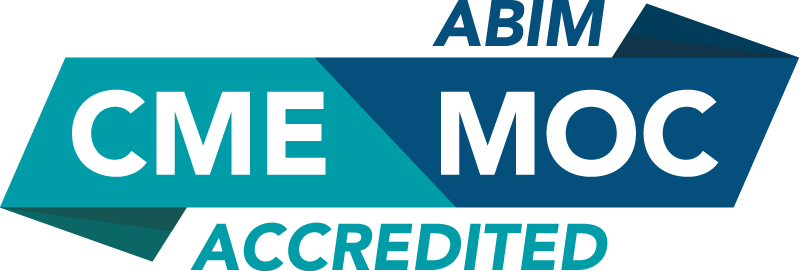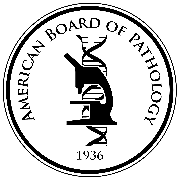NCCN 2019 Congress Series™: Breast Cancer with Updates from 2018 San Antonio Breast Cancer Symposium
Breast cancer is the most common malignancy in women in the United States and is second only to lung cancer as a cause of cancer death. The treatment of breast cancer is rapidly evolving. Results from numerous clinical trials continue to expand new therapeutic options, treatment and risk reduction strategies, and diagnostic/prognostic tools. Health care professionals need to be educated on current and emerging scientific data to make evidence-based treatment decisions and to provide optimal care for patients with breast cancer.
This congress will provide expert insights on the current standard of care for patients with breast cancer to assist oncology health care professionals with formulating breast cancer management strategies. Featured sessions at this program will include the latest clinical research updates presented at the 2018 San Antonio Breast Cancer Symposium® (SABCS). This update has become the highlight of this congress hosted by the Robert H. Lurie Comprehensive Cancer Center of Northwestern University each year.
Target Audience
This educational program is designed to meet the educational needs of physicians, nurses, pharmacists, and other health care professionals who manage patients with breast cancer.
Learning Objectives
Following this program, participants should be able to:
Overall Congress Objectives
• Summarize the current standards of oncology care, key updates in the NCCN Clinical Practice Guidelines in Oncology (NCCN Guidelines®), and clinical research updates from the 2018 SABCS, and integrate appropriate strategies into clinical practice to optimize the management of patients with breast cancer and improve patient outcomes.
• Evaluate new, emerging and novel therapeutic agents, advances in care, and clinical trials data and apply relevant findings into the management of patients with breast cancer.
Genetic/Familial High-Risk Evaluation in Patients with Breast Cancer
• Recognize the association between some gene mutations (e.g., BRCA1/2) and hereditary cancer syndromes and increased risk of breast cancer.
• Review the factors for determining when genetic counseling should be recommended for individuals with a personal and/or family history of breast cancer.
• Identify advantages and difficulties associated with multigene testing for breast cancer.
Implementation and Implications of AJCC Cancer Staging Manual, 8th Edition for Breast Cancer Staging
• Recognize the importance of large studies to inform the development of cancer staging systems.
• Outline the important changes specific to breast cancer staging in the AJCC Cancer Staging Manual, 8th Edition.
• Utilize the updated AJCC Cancer Staging Manual, 8th Edition in clinical practice.
Evidence-Based Integrative Therapies in Breast Cancer
• Discuss the risks, benefits, and goals of non-conventional therapies with patients and survivors.
• List several evidence-based integrative therapies that can be useful for patients with breast cancer and survivors.
• Recognize the importance of integrating conventional and non-conventional care and coordination between providers.
Locoregional Treatment of Breast Cancer, Including SABCS Updates
• Develop evidence-based approach for the management of the axilla in patients with early stage breast cancer.
• Individualize radiation therapy recommendations based on patient and tumor characteristics.
• Discuss new and emerging data in the treatment of patients with early stage breast cancer and integrate key findings into clinical practice.
Utility of Multigene Assays in Management of Early Stage Breast Cancer
• Describe the difference between breast cancer factors that are prognostic, predictive, or both.
• Compare multigene assays available for hormone receptor-positive, HER2-negative disease.
• Select appropriate multigene assays based on patient and tumor characteristics and individualize adjuvant systemic therapy recommendations.
Management of Lymphedema After Breast Cancer Treatment
• List risk factors for the development of lymphedema after breast cancer treatment.
• Discuss the negative impact that lymphedema can have on breast cancer survivors.
• Describe management approaches that can improve lymphedema symptoms in breast cancer survivors.
Neoadjuvant and Adjuvant Therapies for Early Stage Breast Cancer, Including SABCS Updates
• Recognize key patient and clinical factors that influence selection of systemic neoadjuvant therapy.
• Select appropriate evidence-based adjuvant endocrine options for patients with early stage HR-positive breast cancer.
• Discuss clinical data of new and emerging supportive care interventions to improve quality of life of patients undergoing neoadjuvant/adjuvant chemotherapy.
New Systemic Therapies for Metastatic Breast Cancer, Including SABCS Updates
• Select evidence-based first- and subsequent-line treatment options for patients with metastatic breast cancer based on hormone- and HER2- receptor status, and discuss the benefits and risks of treatment options with patients.
• List the current therapeutic approaches for triple negative metastatic breast cancer.
• Outline new and emerging therapeutic options for patients with metastatic breast cancer.
NCCN Medical Education Disclosure Policy
It is the policy of NCCN that every 12 months, all faculty, moderators, activity planners and all internal planning staff participating in NCCN continuing education activities are expected to disclose any financial relationships with a commercial interest as defined by the Accreditation Council for Continuing Medical Education (ACCME) Standards for Commercial Support. In addition, all faculty presentations have been reviewed for adherence to the ACCME’s Standards for Commercial Support (the provider develops activities/educational interventions independent of commercial interests [SCS 1, 2 and 6] by experts on the topics).
Per the ACCME Standards for Commercial Support, individuals who do not disclose relevant financial relationships will be disqualified from involvement in the CE activity as a content developer, planner, or presenter. A complete list of individuals’ relationships with external entities is available upon request.
Definitions
NCCN continuing education considers financial relationships to create a “conflict of interest” when an individual has both a financial relationship with a commercial interest and the opportunity to affect CE content about the products or services of a commercial interest with which he/she and/or a spouse or partner has a financial relationship.
NCCN continuing education considers “relevant financial relationships” as financial relationships in any amount occurring within the past 12 months that create a conflict of interest. NCCN does not set a minimal dollar amount for relationships to be significant. Inherent in any amount is the incentive to maintain or increase the value of the relationship.
Faculty Disclaimers
All faculty for this continuing education activity are competent in the subject matter and qualified by experience, training, and/or preparation for the tasks and methods of delivery.
Faculty presentations may include discussion of off-label use. Faculty will disclose that the use in question is not currently approved by the FDA per the product labeling.
Faculty Disclosures
The faculty listed below discloses no relevant financial relationships:
Benjamin O. Anderson, MD
Gary Deng, MD, PhD
Tuya Pal, MD
Tara Sanft, MD
Claudia Tellez, MD
The faculty listed below discloses the following relevant financial relationships:
Stephen B. Edge, MD
Pfizer Inc.: Grant/Research Support
William J. Gradishar, MD
AstraZeneca Pharmaceuticals LP: Scientific Advisor
MacroGenics, Inc.: Scientific Advisor
Roche Laboratories, Inc./Genentech, Inc.: Scientific Advisor
Seattle Genetics, Inc.: Scientific Advisor
Steven J. Isakoff, MD, PhD
AbbVie, Inc.: Grant/Research Support
AstraZeneca Pharmaceuticals LP: Grant/Research Support
Genentech, Inc.: Consulting Fee; Grant/Research Support
Hengrui Pharma: Consulting Fee
Immunomedics, Inc.: Consulting Fee
Merck & Co., Inc.: Grant/Research Support
Mylan: Consulting Fee
Myriad Genetic Laboratories, Inc.: Consulting Fee
OncoPep: Grant/Research Support
Pharmamar Inc: Grant/Research Support
Puma: Consulting Fee
Ingrid A. Mayer, MD, MSCI
AstraZeneca Pharmaceuticals LP: Consulting Fee; Grant/Research Support; Honoraria
Genentech, Inc.: Consulting Fee; Grant/Research Support; Honoraria
GlaxoSmithKline: Consulting Fee
Immunomedics, Inc.: Consulting Fee
Novartis Pharmaceuticals Corporation: Consulting Fee; Grant/Research Support; Honoraria
Pfizer Inc.: Grant/Research Support
Kari Wisinski, MD
Genomic Health, Inc.: Honoraria
NCCN Staff Disclosures
The NCCN Activity Planning staff listed below discloses no relevant financial relationships:
Melissa Esplen; Mark A. Geisler; Kristina M. Gregory, RN, MSN, OCN; Kristin Kline Hasson; Rose Joyce; Karen Kanefield; Lisa Perfidio, MS; Shannon Ryan; Kathy Ann Smith, CMP, CHCP
The NCCN Activity Planning staff listed below discloses the following relevant financial relationships:
Donald Harting, ELS, CHCP (Employed by NCCN until 12/3/18)
Laboratory Corporation of America (LabCorp): Equity interest/Stock Options
Katherine Pierce (Employed by NCCN until 8/1/18)
Pfizer Inc.: Equity Interest/Stock Options
Boston Scientific Corporation: Equity Interest/Stock Options
The NCCN Clinical staff listed below discloses no relevant financial relationships:
Susan D. Darlow, PhD; Mary A. Dwyer, MS, CGC; Ellen Erkess; Deborah A. Freedman-Cass, PhD; Rashmi Kumar, PhD; Nicole R. McMillian, MS, CHES; Dorothy A. Shead, MS

In support of improving patient care, National Comprehensive Cancer Network (NCCN) is jointly accredited by the Accreditation Council for Continuing Medical Education (ACCME), the Accreditation Council for Pharmacy Education (ACPE), and the American Nurses Credentialing Center (ANCC), to provide continuing education for the healthcare team.
Physicians
NCCN designates this live activity for a maximum of 5.25 AMA PRA Category 1 Credits™. Physicians should claim only the credit commensurate with the extent of their participation in the activity.
Nurses
NCCN designates this educational activity for a maximum of 5.25 contact hours.
Pharmacists
NCCN designates this knowledge-based continuing education activity for 5.25 contact hours (0.525 CEUs) of continuing education credit. UAN: 0836-0000-19-014-L01-P
Physician Assistants
NCCN has been authorized by the American Academy of PAs (AAPA) to award AAPA Category 1 CME credit for activities planned in accordance with AAPA CME Criteria. This activity is designated for 5.25 AAPA Category 1 CME credits. PAs should only claim credit commensurate with the extent of their participation.
American Board of Internal Medicine Maintenance of Certification (MOC)

Successful completion of this CME activity, which includes participation in the evaluation component, enables the participant to earn up to 5.25 medical knowledge MOC points in the American Board of Internal Medicine’s (ABIM) Maintenance of Certification (MOC) program. Participants will earn MOC points equivalent to the amount of CME credits claimed for the activity. It is the CME activity provider’s responsibility to submit participant completion information to ACCME for the purpose of granting ABIM MOC credit.
Aggregated participant data will be shared with the commercial supporters of this activity.
American Board of Pathology Maintenance of Certification (MOC)

This activity has been registered to offer credit in the American Board of Pathology’s (ABPath) Maintenance of Certification program. Successful completion of this CME activity enables the participant to earn up to 5.25 Lifelong Learning (Part II) credits.
Aggregated participant data will be shared with the commercial supporters of this activity.
American Board of Medical Specialties (MOC)
Through the American Board of Medical Specialties (“ABMS”) MOC Initiative to create a wide array of Maintenance of Certification (“MOC”) Activities through the ABMS MOC Directory, the NCCN 2019 Congress Series: Breast Cancer has met the MOC requirements as a MOC Part II CME Activity (apply toward general CME requirement) by the following ABMS Member Boards:
MOC Part II CME Activity
Radiology
Available Credit
- 5.25 AAPA Category 1 CME credit
- 5.25 ABIM MOC
- 5.25 AMA PRA Category 1 Credit™
- 5.25 ANCC contact hours
- 5.25 Participation
Required Hardware/software
To complete this activity, users will need:
- A device with an Internet connection
- Adobe Reader or other PDF reader software for certificate viewing/printing

 Facebook
Facebook X
X LinkedIn
LinkedIn Forward
Forward